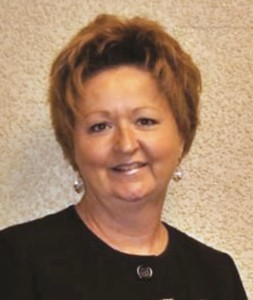 Teresa Dail
Teresa Dail
Chief supply chain officer, Vanderbilt University Medical Center, Nashville, Tenn.
Four hospitals; 151 employed physician clinics; 1,065 beds; $500 million annual supply chain spend.
Teresa Dail’s healthcare career began in clinical nursing, followed by a role in clinical practice administration for a private practice group. Her exposure to vendor/physician relationships led to various supply chain positions, including director of supply chain at Vanderbilt University Medical Center in 2007. Today, as chief supply chain officer, she oversees all areas of operations related to supply chain, including a strong self-contracting model, procurement, GPO oversight, capital acquisition and database development, and more. She is also responsible for supply chain activities at a 50,000-square-foot off-site case cart operation center, which handles case picks for Vanderbilt’s adult hospital.
The Journal of Healthcare Contracting: What has been the most challenging and rewarding project you have been involved in recently?
Teresa Dail: Our most recent project is the Vanderbilt Supply Chain Services (VSCS) program, which will enable us to work with other non-owned hospitals or systems. We currently have nine hospitals in the program with a focused growth plan to add participants. Our goal is multi-faceted. We know that we can bring value to these entities through the self-contracting model that we have in place and our ability to drive compliance. By working on behalf of these organizations, it is our goal to help them improve their margins so that they can continue to provide services within their communities. With the changes occurring today in healthcare, we must find a way to allow these small-to-medium sized community hospitals keep their doors open. We will also work to share best practice and innovative approaches to management of complex supply chain issues. Our goal is to position the supply chain to be a strong, integrated member of the healthcare team in the effort to drive quality and reduce cost.
JHC: Please describe a project you look forward to implementing in the next year or two.
Dail: We have a new product and technology program that embraces physician and clinician leadership and engagement that has been in place for six years. While the committees have been very successful in supporting standardization, centralized contracting, cost reductions and new technology assessment/acquisition, we realize that we need to evolve beyond that. Internally, we are working closely with our senior leadership team to understand how the committees, and supply chain in general, can help support the patient care centers as they become more engaged in Episode of Care (bundles) initiatives, focused growth and centers of excellence.
JHC: What is the most important quality you look for in a supplier partner?
Dail: A combination of flexibility and innovation. Being able to step out of the box that has previously defined the way they traditionally sell or contract with an organization, thinking broader about how we can work together to drive value for each other and being willing to be a risk taker.
JHC: What is the greatest change we can expect to see in healthcare contracting in the next five years?
Dail: Outcomes are going to be the center of a health system’s focus, and the level of scrutiny around what drives differences will, I believe, ultimately flush out and negate the need to have two, three or nine suppliers in a given category.
